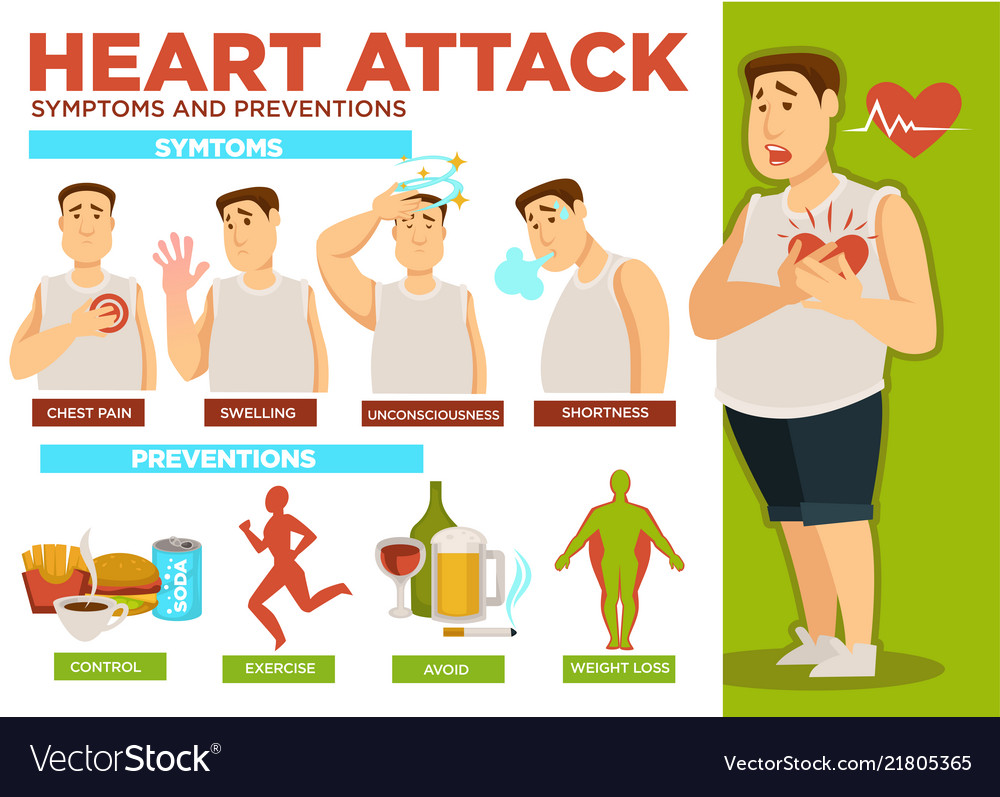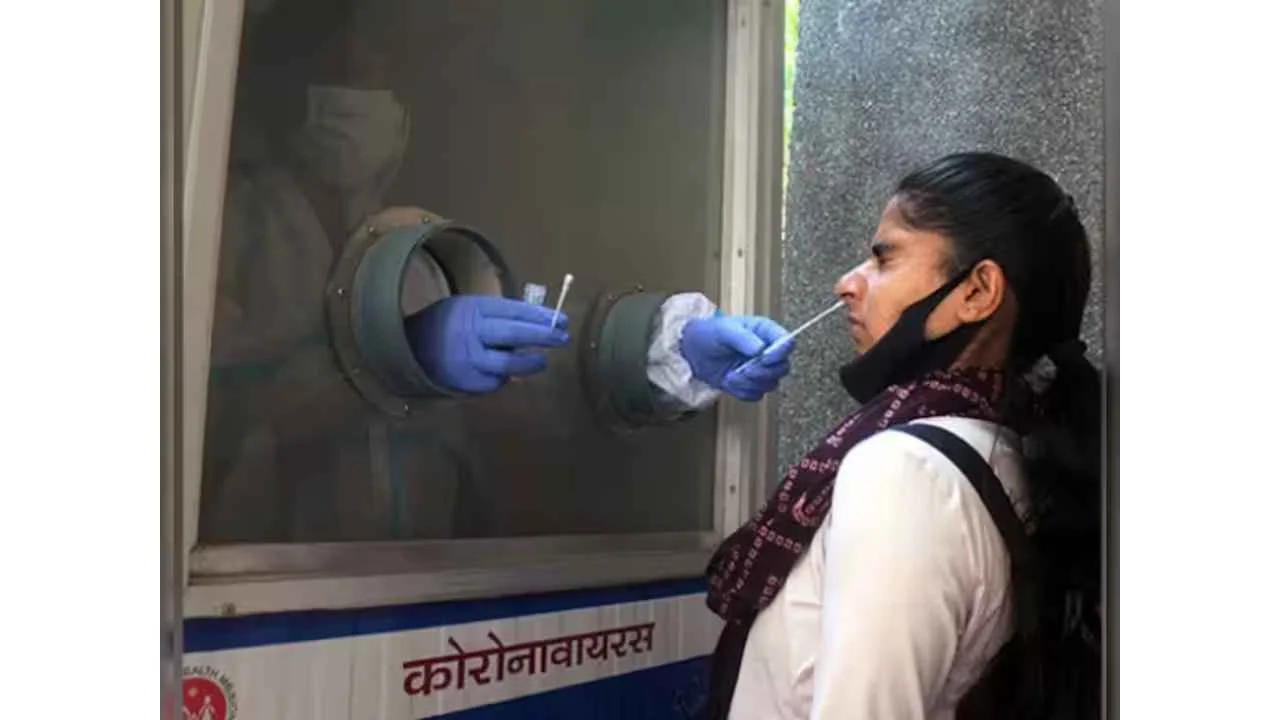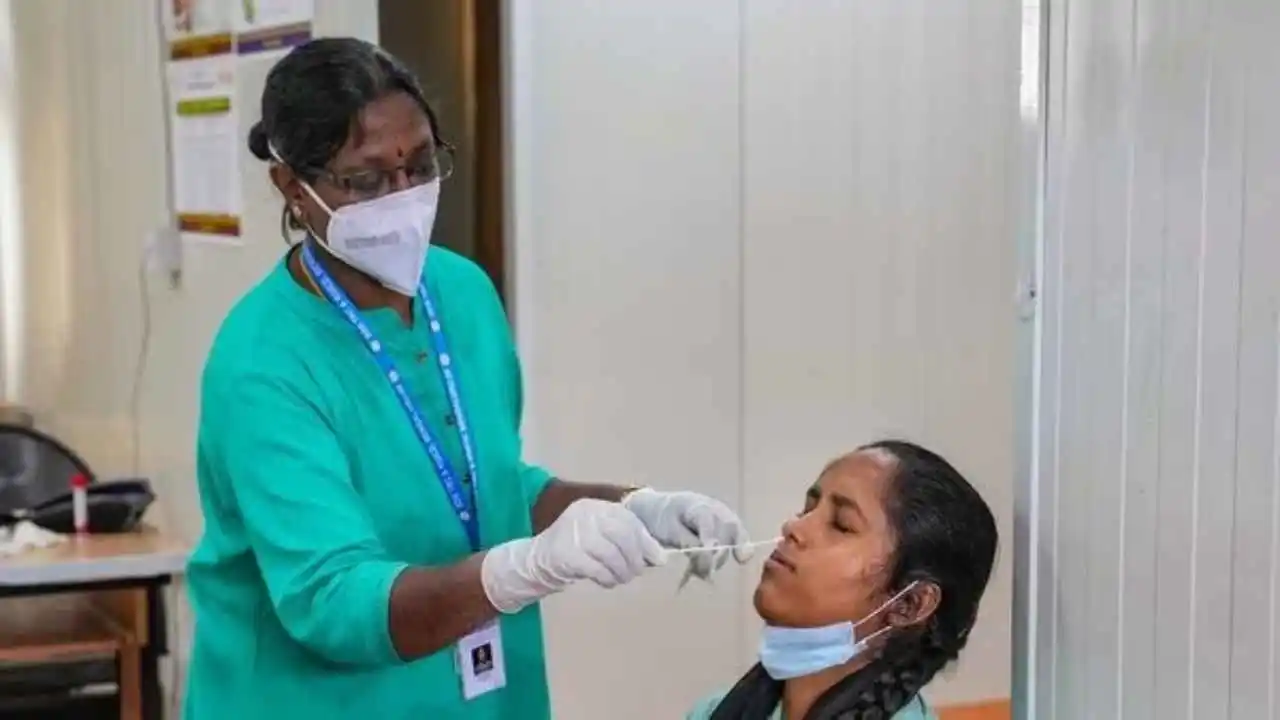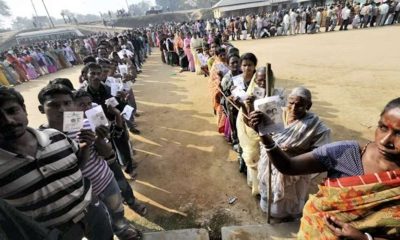Health
Can overweight, diabetes cause heart failure? Here are answers to your heart-related queries
The term heart failure is a scary term. But do you know that a heart attack does not imply that the heart has “failed” or ceased to function? It indicates that the heart isn’t pumping as efficiently as it should be. Heart attack is a major public health issue all around the world.

The term heart failure is a scary term. But do you know that a heart attack does not imply that the heart has “failed” or ceased to function? It indicates that the heart isn’t pumping as efficiently as it should be. Heart attack is a major public health issue all around the world.
According to the reports, the United States is a country where heart attack is negatively impacting around 5.7 million people. Every year, around 550,000 new instances of heart failure are diagnosed. In persons over the age of 65, it is the main cause of hospitalization.
Globally, the biggest cause of mortality rates is due to cardiovascular disease. They’ve taken off like wildfire, and a lot of it has to do with the time period we live in. We often work too much, sleep too little, eat unhealthy meals, and don’t get enough exercise. In this whole process, our body often sends us signals but we are so busy in our lives that we don’t even notice and are aware of.
Would you be able to determine if there was a problem with your heart?
There aren’t always clear indicators that something is wrong with your heart. The terrifying chest grasp followed by a tumble to the floor seen in movies is not always the case or the reality. Some heart symptoms don’t even manifest themselves in the chest, and it’s not always easy to figure out what went wrong with you. So, if you are not sure, get it checked by the cardiologist (heart doctor).
According to Vincent Bufalino, an American Heart Association spokesman, if a person is 60 years old or older, he or she is overweight or has diabetes, high blood pressure, or cholesterol then that person has high-risk factors of getting cardiac attacks.
What are the symptoms of a heart attack?
It’s likely possible that your symptoms are minor or that you don’t have any at all in the notice. This does not imply that you are no longer suffering from a heart attack or heart failure. Cardiovascular disease symptoms can range from moderate to severe, and they might come and go.
- Shortness of breath or breathing difficulties is one of the major symptom of heart attack. When you exercise, rest, or lie flat in bed, you may have difficulty breathing. When fluid backs up in the lungs (congestion) or when your body doesn’t obtain enough oxygen-rich blood, you’ll experience shortness of breath. If you wake up in the middle of the night to sit up and catch your breath, the you have a serious problem that requires medical treatment immediately.
2. When you are active, you may have tiredness and leg weakness. You become tired and your legs may feel weak if your heart does not pump enough oxygen-rich blood to your primary organs and muscles.
3. Weight increase and swelling in the ankles, legs, and abdomen. When your kidneys are not at all able to filter enough blood, your body retains excess fluid and water. Swelling, edema, and weight gain are caused by excess fluid in the body.
4. In the middle of the night, while sleeping when you need to urinate is one of the signs. When you lie down, gravity induces higher blood flow to the kidneys. As a result, your kidneys produce more pee and you need to urinate more frequently.
5. Dizziness, confusion, difficulty concentrating, and fainting are all symptoms of this disease. These symptoms could indicate that your heart isn’t pumping enough oxygen-rich blood to the brain.

6. Racing heart (rapid or irregular heartbeats): If your heart muscle isn’t pumping hard enough, your heart may beat quicker to try to get enough oxygen-rich blood to your important organs and muscles. If your heart is larger than normal, you may also have an abnormal heartbeat (after a heart attack or due to abnormal levels of potassium in your blood).
Read Also: Hers’s all you need to know about Medical Counselling Committee for NEET 2021
7. A harsh, dry cough. When you’re lying flat and have extra fluid in your lungs, you’re more prone to get a cough caused by heart failure.
8. A bloated or hard stomach, a loss of appetite, or an upset stomach are all symptoms of an upset stomach (nausea).
9. One of the heart failure symptoms is sweating. People start sweating in this disease.
10. Discomfort in the neck, shoulder or upper back is also a sign.
Health
India registers 313 new Covid cases, active cases reach 2,041, 3 deaths recorded in last 24 hours
The currently available data suggests that the JN.1 variant is neither leading to an exponential rise in the new cases nor a rise in the hospitalization and mortality.

India saw a single-day rise of 313 new Covid cases, while the active caseload has declined to 2,041, the health ministry said on Saturday. Three deaths: two from Karnataka and one from Maharashtra were reported in the last 24 hours.
According to the ministry website, the number of active cases in the country stood at 2,331 on Friday. The number of cases of Covid had dropped to double digits till December 5, but it began to start increasing after the emergence of a new variant and cold weather conditions.
According to reports after December 5, the highest single day rise of 841new cases was reported on December 31, 2023, which is 0.2% of the peak cases reported in May 2021. Of the total active cases, a large majority of these (around 92%) are recovering under home isolation.
The currently available data suggests that the JN.1 variant is neither leading to an exponential rise in the new cases nor a rise in the hospitalization and mortality. India has witnessed three waves of Covid in the past with its peak incidence of daily new cases and deaths being reported during the delta wave in April June 2021.
At its peak, 414,188 new cases and 3915 deaths were reported on May 7, 2021. Since the pandemic started in early 2020, there have have been 4.5 crore people who have got infected and this has resulted in the death of 5.3 lakh persons in a total time span of four years.
According to the ministry data, the total number of persons who have recuperated from the disease are 4.4 crore with total recovery rate recorded is 98.81%. A total number of 220.67 crore doses of Covid vaccines have been administered in India so far.
Health
India registers 605 new COVID-19 cases and 4 deaths in last 24 hours
The number of people who have recovered from the disease has gone up to 4,44,81,341, an increase of 648 since Sunday morning. In Kerala a 70 year-old male with chronic obstructive pulmonary disease (COPD) and 81year-old male with T2DM and HTN, and in Karnataka, a 48 year old male with CA and TB died, while one person in Tripura succumbed to COVID.

India recorded 605 fresh COVID-19 cases and four deaths in the last 24 hours. The active cases have increased to 4002, while India’s overall COVID case tally stands at over 4.5 crore (4,50,18,792). The death toll was recorded at 5,33,396 with four new deaths – two from Kerala and one each in Karnataka and Tripura – reported in the last 24 hours, the data updated at 8am stated.
The number of people who have recovered from the disease has gone up to 4,44,81,341, an increase of 648 since Sunday morning. In Kerala a 70 year-old male with chronic obstructive pulmonary disease (COPD) and 81year-old male with T2DM and HTN, and in Karnataka, a 48 year old male with CA and TB died, while one person in Tripura succumbed to COVID.
The Indian Council of Medical Research (ICMR) reported that 11,838 doses of the vaccine had been administered in the country till January 7. The data is a compilation of the Integrated Disease Surveillance Programme (National Centre for Disease Control), media bulletins and websites of various states at 8am on January 4.
As the winter season sets in, health experts are highlighting a sudden surge in viral infections, influenza, and COVID-19 cases. Dr Nikhil Modi, a senior pulmonologist at Indraprastha Apollo Hospital, pointed out that the decrease in temperature leads to increase in moisture in the air, low wind speed and also causes an increase in pollution levels. This contributes highly to various infections.
Due to the decrease in temperature the fog combines with the pollution in the air which further leads to the formation of smog. This condition of the atmosphere can cause different types of infections and difficulty in breathing. Both the state and the central government are keeping a close watch on the new Omicron Subvariant JN.1. J.N.1 is a Variant of Interest (VOI) which is under intense scientific scrutiny.
Health
India records 774 new Covid-19 cases, 2 deaths in 24 hours
The number of daily cases was in double digits till December 5 but it started to rise again amid cold weather conditions and after the emergence of new Covid-19 variant, JN.1.

India on Saturday had a single-day rise of 774 Covid cases while the number of active cases stood at 4,187, the Union health ministry said. As many as two deaths – one each from Tamil Nadu and Gujarat were reported in a span of 24 hours. Of the 4,187 active cases, the majority (over 92%) are recovering under home isolation.
The number of daily cases was in double digits till December 5 but it started to rise again amid cold weather conditions and after the emergence of new Covid-19 variant, JN.1. The central government has asked the state government and union territories to maintain a constant vigil amid an upward trend in the number of Covid-cases and the detection of the JN.1 sub variant in the country.
According to reports after December 5, the highest single-day rise of 841 cases was reported on December 31, 2023, which was 0.2% of the peak cases reported in May 2021. A health official said that the JN.1 variant is neither leading to an exponential rise in new cases nor a surge in hospitalisation and mortality in the country.
The Karnataka government has made the Covid test mandatory for those with Influenza like illness (ILI) or Severe Acute Respiratory Illness (SARI). Karnataka Health Minister Dinesh Gundu Rao said more than 7000 tests are being done every day and the COVID positivity rate is 3.82%. The positivity rate in the state has not come down yet.
He said those with symptoms are being monitored and tested. Those who are in isolation at home have been told to take extra care. He added it is expected that the trend of decreasing Covid cases may start next week in Karnataka. India has witnessed three waves of Covid-19 in the past with the peak incidence of daily cases and deaths being reported during the Delta wave during April-June 2021. At its peak 4,14,188 cases and 3915 deaths were reported on May 7, 2021.
-

 India News22 hours ago
India News22 hours agoLandslide hits Arunachal Pradesh, highway linking Indo-China border affected
-

 Entertainment21 hours ago
Entertainment21 hours agoBollywood stars Salman Khan, Alia Bhatt, Rekha, Sonakshi Sinha, Aditi Rao Hydari attend Sanjay Leela Bhansali’s Heeramandi premiere
-

 Cricket news15 hours ago
Cricket news15 hours agoTelugu superstar Mahesh Babu meets SRH captain Pat Cummins, says it is an absolute honour
-

 Education20 hours ago
Education20 hours agoFarmer’s son Nilkrishna Gajare Nirmalkumar from Maharashtra scores 100 NTA score in IIT-JEE Mains 2024
-

 India News23 hours ago
India News23 hours agoTamannaah Bhatia summoned in illegal IPL streaming app case, to appear before cyber cell on April 29
-

 Cricket news22 hours ago
Cricket news22 hours agoIPL 2024: Rishabh Pant, Axar Patel score half centuries as Delhi Capitals beat Gujarat Titans by 4 runs
-

 2024 Lok Sabha Elections21 hours ago
2024 Lok Sabha Elections21 hours agoBihar: Election Commission extends voting timings for 4 Lok Sabha seats due to heatwave
-

 Entertainment18 hours ago
Entertainment18 hours agoAamir Khan to begin shooting in Delhi for Sitaare Zameen Par next month


















